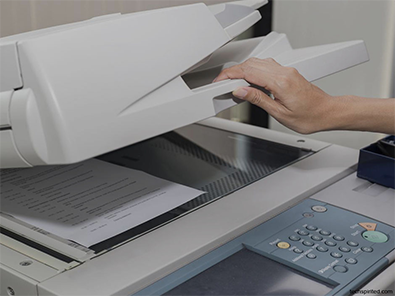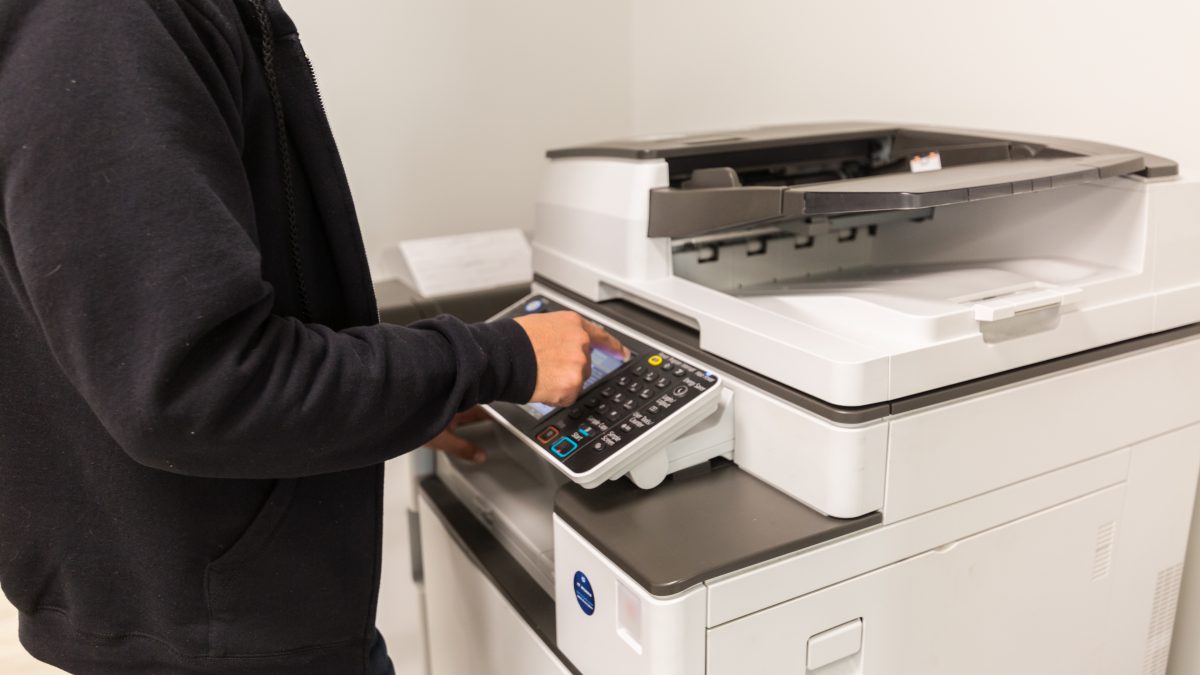When it comes to outfitting their offices with essential equipment like copiers, printers, and other office machines, businesses are often faced with a decision: Should they rent the equipment or enter into a lease agreement?
Each option has advantages and challenges, and the right choice can significantly impact your company’s bottom line and operational efficiency. Whether based in Baltimore or elsewhere, understanding the differences between office equipment rental and copier leasing is key to determining the best solution for your business needs.
In this article, Clear Choice Technical Services of Baltimore break down these two options to help you make a more informed decision that aligns with your budget and long-term goals.
Office Equipment Rental vs. Copier Leasing: What’s the Difference?
Both office equipment rental and copier leasing allow businesses to access necessary machines without the upfront cost of purchasing. However, there are distinct differences in the terms and structure of each arrangement.
- Office Equipment Rental is typically a short-term arrangement in which businesses rent office machines on a daily, weekly, or monthly basis. It is a flexible option for companies that need equipment for a limited time, such as during a project or a temporary spike in business activity.
- On the other hand, Copier Leasing is a longer-term commitment that generally lasts from 24 to 60 months. With leasing, businesses make monthly payments for using the copier or other office equipment, but they don’t own the equipment at the end of the term unless they opt for a buyout agreement. This option suits companies that need reliable, long-term equipment with predictable monthly payments.
The primary difference lies in the duration and flexibility of the agreement, making each suited to different types of businesses and needs. Let’s explore the perks of both options to help you make an informed choice for your Baltimore-based business.
Benefits of Office Equipment Rental
Renting office equipment can be an excellent choice for businesses with temporary needs. For example, a marketing firm in Baltimore might need additional copiers for a large-scale event or a short-term project that requires high-volume printing.
Rental agreements allow businesses to access top-of-the-line machines without a hefty upfront investment. Here are some of the key benefits of renting:
- Flexibility in Duration
Rental agreements can range from a day to several months, giving businesses the flexibility to scale up or down as needed. This is ideal for businesses that experience fluctuating demands and want to avoid being tied to long-term contracts.
- No Maintenance Hassles
One of the biggest perks of renting is that most rental agreements include maintenance and repair services. If something goes wrong with the machine, the rental company is typically responsible for fixing it at no additional cost. This can save you from unexpected repair bills or downtime.
- No Long-Term Commitment
If your business is unsure about the equipment’s long-term viability, renting allows you to return it when the need no longer exists. This removes the pressure of making a long-term decision, especially if you’re unsure whether the equipment will be used frequently in the future.
- Easy Upgrades
Rental companies often allow businesses to upgrade to newer models or more advanced equipment without additional cost. This is great for companies that want access to the latest technology without the financial strain of purchasing new equipment.
Despite these advantages, renting is not always the most cost-effective option in the long run, especially if your business requires the same equipment over an extended period.
Benefits of Copier Leasing
Leasing office equipment like copiers is a popular choice for businesses that need reliable and consistent access to machinery without the high initial cost of buying. Copier leasing is typically a better option for companies that plan to use the equipment regularly over a long period.
Here are some key benefits:
- Predictable Monthly Payments
With a copier lease, businesses can budget more effectively since they’ll be paying a fixed monthly fee. This helps manage cash flow and avoid large upfront costs. Over time, the total cost of leasing is often lower than continuously renting equipment.
- Long-Term Cost Efficiency
While the initial investment may be lower than purchasing, copier leasing is more cost-effective over time. This is especially true for businesses that rely on copiers daily or weekly.
With a lease, you’re paying for the use of the machine over a set period, and once the lease ends, you can upgrade or buy the equipment at a reduced cost.
- Maintenance and Support
Most copier leasing agreements include regular maintenance and support, which can reduce the overall cost of upkeep and repairs. If a copier breaks down or needs servicing, the leasing company typically covers those costs, ensuring minimal disruption to your business operations.
- Access to the Latest Technology
Leasing agreements often allow businesses to upgrade their equipment at the end of the lease term, ensuring you always have access to the latest models and features. For businesses in industries that rely on cutting-edge technology, leasing can ensure you don’t fall behind the competition.
While copier leasing is more cost-effective in the long run, the commitment involved can be a drawback for businesses needing flexibility or unpredictable needs.
Which Option Is Right for Your Business?
So, how do you know whether office equipment rental or copier leasing is the right choice for your business? Here are some factors to consider:
1. Duration of Need
- Renting makes sense for businesses that need equipment for a short period. A rental option is ideal if your office only requires copiers during a busy season.
- Leasing is the best choice for businesses needing consistent equipment access over several years. If you can predict that your copier usage will be high for a long period, leasing is more economical.
2. Flexibility vs. Stability
- Renting offers more flexibility for companies unsure about their long-term needs or expect changes in their business operations.
- While leasing offers less flexibility, it gives businesses the security of knowing they’ll have the equipment they need without worrying about equipment failure or unexpected repair costs.
3. Cost Considerations
- Renting may be more expensive in the short term, especially if you need the equipment for several months. However, it’s a great choice if you’re operating on a tight budget or have temporary needs.
- Leasing is more cost-effective in the long term, especially for businesses that need reliable and regular access to copiers.
4. Upgrades and Technological Needs
- If your business frequently needs the latest technology, renting might be a better option. It allows you to easily swap out old equipment for new models.
- Leasing contracts often offer upgrade options, which might not be as frequent or flexible as a rental agreement.
Managing Your Office Equipment Efficiently
Whether you rent or lease, managing your office equipment effectively minimizes downtime and maximizes productivity. Here are some tips to help you get the most out of your rental or lease agreement:
- Track Usage
Monitoring how much you use your equipment helps you understand whether renting or leasing is more cost-effective in the long run. Leasing might be the better option for businesses that need high-volume printing. On the other hand, occasional users may find renting more efficient.
- Regular Maintenance
Make sure that regular maintenance is included in your rental or lease agreement. This can prevent minor issues from becoming big problems and keep the equipment in top condition.
- Stay Within Terms
Both rental and lease agreements come with terms and conditions. Exceeding your allocated usage or failing to return rented equipment on time can result in extra charges. Keeping a close eye on your contract terms will ensure you don’t face unexpected expenses.
- Understand the Fine Print
Always read the fine print before committing to a rental or lease agreement. Make sure you understand the terms for maintenance, upgrades, and early termination fees.
Choosing the Best Option for Your Baltimore Business
Choosing between office equipment rental and copier leasing is a decision that depends on your specific business needs, budget, and long-term goals. Renting is an excellent solution for short-term projects or occasional use, while leasing is a more cost-effective and reliable option for businesses with ongoing equipment needs.
If you need assistance deciding between office equipment rental and copier leasing, or if you’d like to explore available options for your business, contact Clear Choice Technical Services today at (410) 220-5299. Let us help you make the right choice for your office equipment needs!






